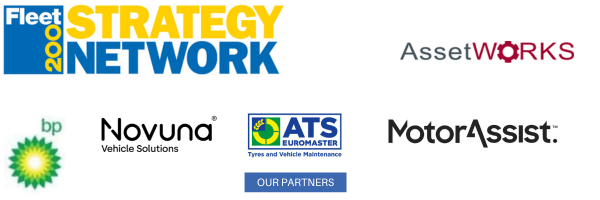AI – artificial intelligence – has become a buzzword among many fleet suppliers to describe many of the current and new services and products being offered, but what does it mean to fleet operators?
Attendees at the latest Fleet200 Strategy Network, held at the British Motor Museum in Gaydon, discussed the issue during a roundtable debate, and how it could change their operations.
“If you could interrogate your fleet data by saying ‘tell me my most risky top 10 drivers’ and then you get them within a second without going to the depot manager, the transport manager etc, would that not be a benefit?” asked one attendee.
The table generally agreed AI could improve cost and time efficiency by reducing the need for manual entry and analysis, but accurate data input us crucial, as human error can skew driver performance assessments.
Using data from sources such as vehicle telematics, the attendees heard AI can provide objective analysis to overcome emotional biases in decision-making and address specific issues like harsh braking and speeding to improve fuel efficiency and safety.
The attendees also heard AI could be used for dynamic route planning, to help select the optimal routes by, for example, avoiding accident blackspots, while the ability to plan routes with charging infrastructure in mind could benefit electric vehicle fleets.
This appealed to one of the fleet managers in particular, who is struggling to win acceptance from their drivers for electric vans/
AI – artificial intelligence – has become a buzzword among many fleet suppliers to describe many of the current and new services and products being offered, but what does it mean to fleet operators?
Attendees at the latest Fleet200 Strategy Network, held at the British Motor Museum in Gaydon, discussed the issue during a roundtable debate, and how it could change their operations.
“If you could interrogate your fleet data by saying ‘tell me my most risky top 10 drivers’ and then you get them within a second without going to the depot manager, the transport manager etc, would that not be a benefit?” asked one attendee.
The table generally agreed AI could improve cost and time efficiency by reducing the need for manual entry and analysis, but accurate data input us crucial, as human error can skew driver performance assessments.
Using data from sources such as vehicle telematics, the attendees heard AI can provide objective analysis to overcome emotional biases in decision-making and address specific issues like harsh braking and speeding to improve fuel efficiency and safety.
The attendees also heard AI could be used for dynamic route planning, to help select the optimal routes by, for example, avoiding accident blackspots, while the ability to plan routes with charging infrastructure in mind could benefit electric vehicle fleets.
This appealed to one of the fleet managers in particular, who is struggling to win acceptance from their drivers for electric vans/
“A lot of my drivers are reactive repair drivers for a housing Association, so they don't know what jobs they've got until first thing in the morning,” said the fleet manager.
“They don't get their jobs until they do their walk around safety check, but it would be useful if the planners had access to something like that, particularly for our EV drivers, because I'm really struggling to keep these guys to keep the van.
“If the planners knew what their average mileage they were getting their vehicle was, they could plan their routes more effectively with a charge point included by using the AI to do that, I would have better chance of keeping those guys on the road, because they would know they're going to make their journeys.”
Attendees also voiced concerns about the privacy and ethical implications of using AI-powered driver monitoring technologies, particularly driver-facing in-cab cameras, which monitor the driver for any unwanted behaviours, such as mobile phone use or smoking.
Fleets found objections could be overcome if either senior staff led by example – at one organisation the head of human resources has had a camera installed into his company car – or by clearly explaining the benefits of the technology and addressing driver concerns.
“We’ve had the conversations where we’ve had to go to court with a driver to advise what we're going to do to keep them in their in their job, where they might potentially lose their licence,” said a fleet manager.
“Maybe that's something you could say to the drivers, that we will put a new camera system in their vehicle to monitor them, because that will help prevent them from breaking the law and potentially losing their jobs.”
Login to continue reading.
This article is premium content. To view, please register for free or sign in to read it.




















Login to comment
Comments
No comments have been made yet.